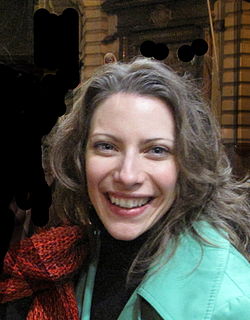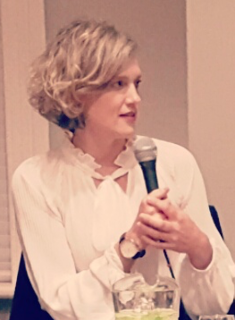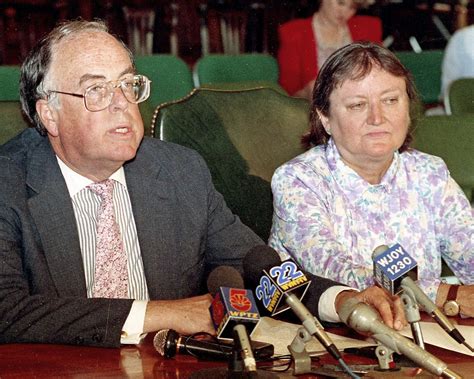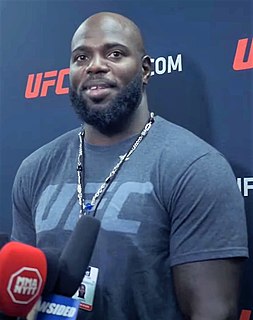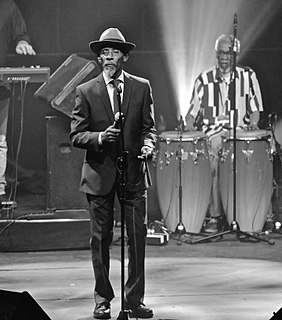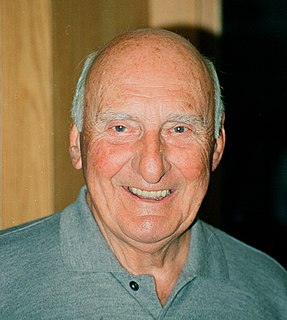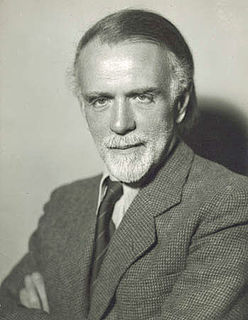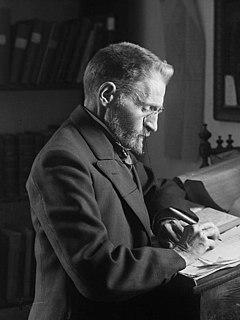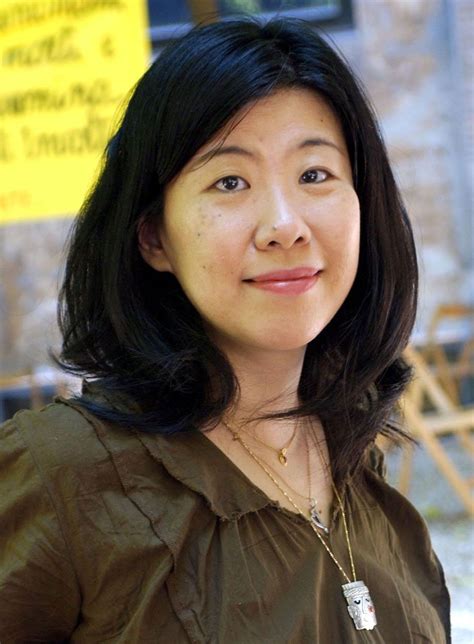Top 1200 Language Quotes & Sayings - Page 16
Explore popular Language quotes.
Last updated on November 23, 2024.
Serial tasking is hard because switching tasks is hard, even when the tasks are easy and similar. In some experiments, bilingual speakers are asked to read out numbers, first in one language and then midway in another language. They often stumble at the switch, taking many tries before they hit their stride again.
English general and singular terms, identity, quantification, and the whole bag of ontological tricks may be correlated with elements of the native language in any of various mutually incompatible ways, each compatible with all possible linguistic data, and none preferable to another save as favored by a rationalization of the native language that is simple and natural to us.
Everyone is used to speaking a slightly different "language" with their parents than with their peers, because spoken language changes every generation - like they say, the past is a foreign country - but I think this is intensified for children whose parents also grew up in a geographically foreign country.
What are your fees?" inquired Guyal cautiously. "I respond to three questions," stated the augur. "For twenty terces I phrase the answer in clear and actionable language; for ten I use the language of cant, which occasionally admits of ambiguity; for five, I speak a parable which you must interpret as you will; and for one terce, I babble in an unknown tongue.
For me, wellbehaved books with neat plots and worked-out endings seem somewhat quaint in the face of the largely incoherent reality of modern life; and then again fiction, at least as I write it and think of it, is a kind of religious meditation in which language is the final enlightenment, and it is language, in its beauty, its ambiguity and its shifting textures, that drives my work.
Literature can no longer be either Mimesis or Mathesis but merely Semiosis, the adventure of what is impossible to language, in a word: Text (it is wrong to say that the notion of 'text' repeats the notion of 'literature': literature represents a finite world, the text figures the infinite of language).
American Sign Language is a language. It's fun to learn, and it's different from other languages because you use your hands, you use your face, your facial expressions, and there is also an incredible culture that comes with it and an amazing community too, and through that, we can support each other.
In Italy, you're in your comfort zone when it comes to language, lifestyle, your habits and preparations, and moving abroad is not easy. It's not easy to carry over your own ideas about football, your own methods. You have to get everything across in a different language, and that wastes a lot of energy.
One must not consider a language as a product dead, and formed but once; it is an animate being, and ever creative. Human thought elaborates itself with the progress of intelligence; and of this thought language is a manifestation. An idiom cannot therefore remain stationary; it walks, it develops, it grows up, it fortifies itself, it becomes old, and it reaches decrepitude.
On of the reasons that I wanted to study literature was because it exposed everything. Writers looked for secrets that had never been mined. Every writer has to invent their own magical language, in order to describe the indescribable. They might seem to be writing in French, English, or Spanish, but really they were writing in the language of butterflies, crows, and hanged men.
Between two beings there is always the barrier of words. Man has so many ears and speaks so many languages. Should it nevertheless be possible to understand one another? Is real communication possible if word and language betray us every time? Shall, in the end, only the language of tanks and guns prevail and not human reason and understanding?
The old view was that delicacy of language was part of the nature, the sacred nature, of eros and that to speak about it in any other way would be to misunderstand it. What has disappeared is the risk and the hope of human connectedness embedded in eros. Ours is a language that reduces the longing for an other to the need for individual, private satisfaction and safety.
In your relationship with God there are also times when you want to say things and you're trying to find the words to express them. In a human relationship sometimes you struggle for words and you've got to do it, but in a relationship with God he can actually give you a language which enables you to communicate. In a relationship with God you feel things and you want to express them and you're not limited by human language. You can express what you really feel in your heart, through a language that he gives you, and that helps you to communicate with God.
When I was a young person I went to the university and I learned a rational language, to think with the left side of the brain. But in the right side of the brain you have intuition and imagination. Words are not the truth; they indicate the way to go, but you need to go alone, in silence. Symbols have a language that kills the words.
I believe C++ instills fear in programmers, fear that the interaction of some details causes unpredictable results. Its unmanageable complexity has spawned more fear-preventing tools than any other language, but the solution should have been to create and use a language that does not overload the whole goddamn human brain with irrelevant details.
When I discovered that, through acting, you can speak a beautiful language aloud and have a relationship to language that isn't one that's just eyes-to-page, pen-to-page - it's one that's full-bodied, full-voiced, full-heart... it really opened my heart and made me feel like I could be a storyteller.
External realities - worlds of politics, economics, law, war, interpersonal and social relations - are part of prose fiction. Fiction also includes the realities of a character's interior language. Poetry can encompass the same realities, but in compressed, intensified language, which creates entirely different degrees of emotional force.
That the language of the poetry of Jamaican music is rastafarian or biblical language cannot simply be put down to the colonizer and his satanic missionaries. The fact is that the historical experience of the black Jamaican is an experience of the most acute human suffering, desolation and despair in the cruel world that is the colonial world.
Art should not be bound by barriers or language. The Hindi film industry is a testament to that. We speak only Hindi, but we premiere in Germany and Japan. Our films do phenomenally well there. We transcend the barriers of language and culture. We welcome you in. I think that's what art should be, and I hope America reaches that place.
Modern language must be older than the cave paintings and cave engravings and cave sculptures and dance steps in the soft clay in the caves in Western Europe, in the Aurignacian Period some 35,000 years ago, or earlier. I can't believe they did all those things and didn't also have a modern language.
There is no reason to believe ... that the "essential purpose" of language is "communication". Language can be used to transmit information, but it also serves many other purposes: to establish relations among people, to express or clarify thought, for play, for creative mental activity, to gain understanding, and so on. In my opinion, there is no reason to accord privileged status to one or the other of these modes.
Absolute freedom doesn't exist and never did. Just as we don't spit on the floor at work, swear at customers, or send out letters full of misspellings, so too we might have to 'watch our language.' It is odd that the request for unbiased language in schools and workplaces is considered intolerable when other limits on our freedom to do whatever we want are not.
I believe there is no liturgy in the world, either in ancient or modern language, which breathes more of a solid, scriptural, rational piety, than the Common Prayer of the Church of England. And though the main of it was compiled considerably more than two hundred years ago, yet is the language of it, not only pure, but strong and elegant in the highest degree.
I think language is a system that we have devised to negotiate a series of more amorphous entities. It's a layer you can use to see where those things exist, but if you don't have anyone speaking anymore, those things are still there. The things that language stands for do not require humans, and in fact are often trampled down by humans.
The semanticists are exactly wrong in regarding language as an obstruction or series of pitfalls. Language, on the contrary, appears as a great storehouse of universal memory, or it may be said to serve as a net, not imprisoning us but supporting us and aiding us to get at a meaning beyond present meaning through the very fact that it embodies others' experiences.
Music is a universal language insofar as you don't need to know anything else about a musician that you are playing with other than that they can play music. It doesn't matter what their music is, you can find something that you can play together, with what their culture is. The dialect part of it comes into play, but nothing like the differentiation that language sets up, for example.
Music is a manifestation of the human spirit, similar to language. Its greatest practitioners have conveyed to mankind things not possible to say in any other language. If we do not want these things to remain dead treasures, we must do our utmost to make the greatest possible number of people understand their idiom.
Text input is certainly useful, but images and speech are a much more natural way for humans to express their queries. Infants learn to see and speak well before they learn to type. The same is true of human evolution - we've had spoken language for a long time compared to written language, which is a relatively recent development.
Living like that utterly convinced me of the extreme limitations of language. I was just a chlld then,so I have only an intuitive understanding of the degree to which one losses control of words once they are spoken or written. It was then that I first felt a deep curiosity about language, and understood it as a tool that encompasses both a single moment and eternity
We think only through the medium of words. Languages are true analytical methods. Algebra, which is adapted to its purpose in every species of expression, in the most simple, most exact, and best manner possible, is at the same time a language and an analytical method. The art of reasoning is nothing more than a language well arranged.



